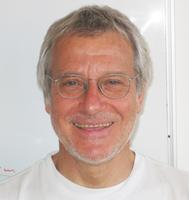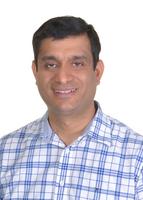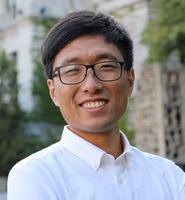Coding and compressed sensing for unsourced multiple access
Jean-François Chamberland – Texas A&M University, United States
Currently deployed wireless access systems based on sustained connectivity, channel estimates, and scheduling policies are ill-equipped to deal with the sporadic traffic generated by legions of unattended wireless devices. This impending technological challenge has fueled several recent research initiatives whose shared goal is to ready wireless infrastructures for the demands of tomorrow. Pertinent recent advances in this area include the introduction of unsourced, uncoordinated multiple-access models attuned to machine-driven communications and the assessment of their fundamental limits for messages with small payloads. This presentation will review recent contributions on this topic and focus on a novel communication scheme, termed coded compressed sensing, for unsourced multiple-access communication. The proposed divide-and-conquer approach leverages recent progress in compressed sensing and forward error correction to produce a novel uncoordinated access paradigm, along with a computationally efficient decoding algorithm. Within this framework, every active device partitions its data into several sub-blocks and, subsequently, adds redundancy using a systematic linear block code. Compressed sensing techniques are then employed to recover sub-blocks up to a permutation of their order, and the original messages are obtained by stitching fragments together using a tree-based algorithm. The presentation will also discuss how this conceptual architecture is influencing other efforts in the field, along with candidate future directions and open problems.
Bio: Jean-Francois Chamberland is a Professor in the Department of Electrical and Computer Engineering at Texas A&M University. He completed a bachelor degree at McGill University, a master of science degree at Cornell University, and a doctorate at the University of Illinois, Urbana-Champaign. His research interests are in the areas of communication and information theory, decision and statistical inference, computer systems and networks, applied probability, and learning. Recently, he has been studying the efficient design of sensing systems and the fundamental limits of wireless communication networks. Applications for his work range from autonomous and connected vehicles to precision agriculture and smart infrastructures. His contributions have been recognized through an IEEE Young Author Best Paper Award from the IEEE Signal Processing Society and a Faculty Early Career Development (CAREER) Award from the National Science Foundation. He was also invited to present educational innovations at the Frontiers of Engineering Education Symposium. He served as Associate Department Head at Texas A&M University, and he is currently an Associate Editor for the IEEE Transactions on Information Theory.
Free entrance.
Welcome to everyone!
Location
CIM
McConnell Building
McGill University
Montréal QC H3A 0E9
Canada


